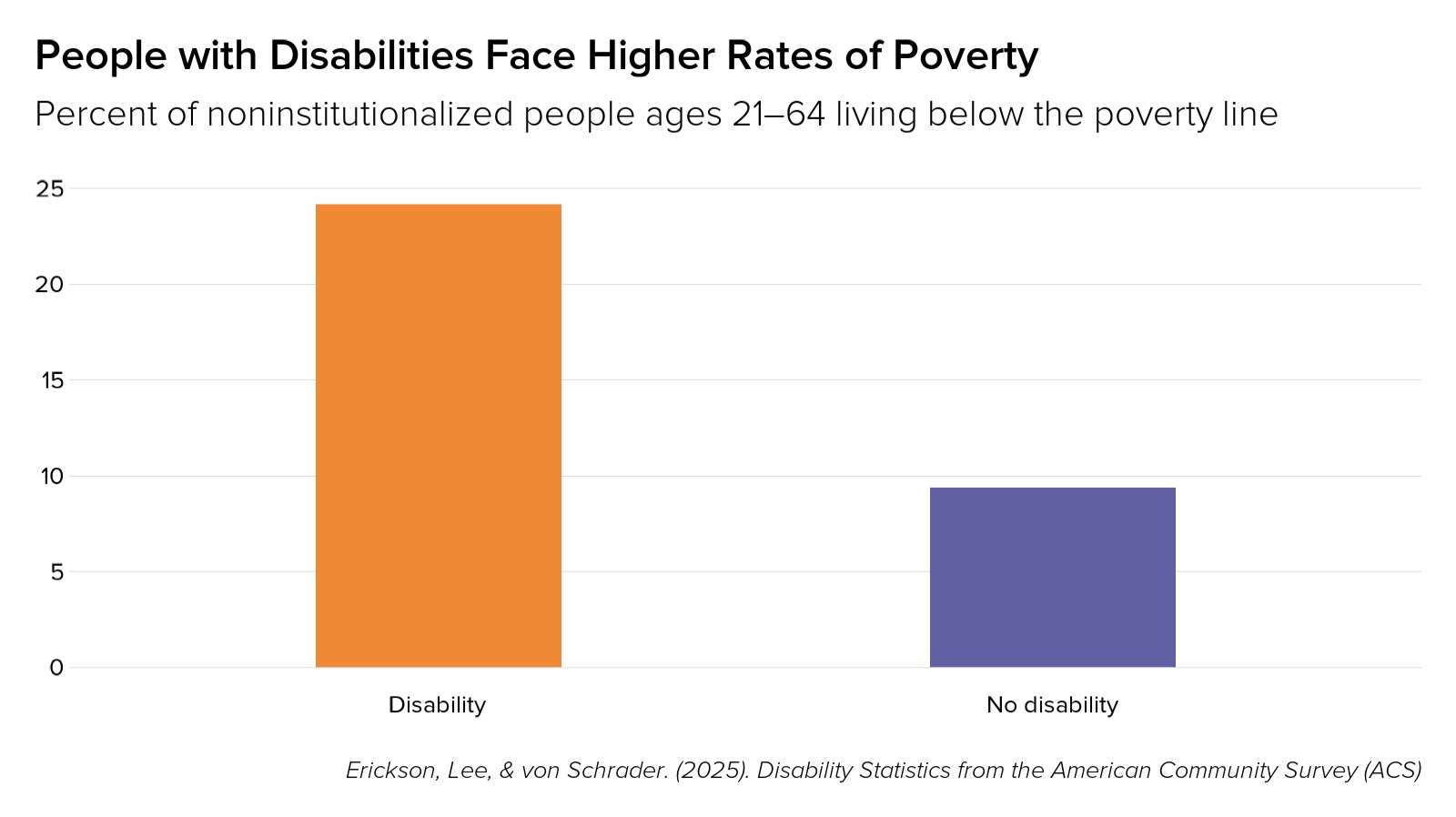Economic Policy Is Disability Policy: Launching the Disability Economic Policy & Research Consortium
October 7, 2025
By Lena Bilik
This September, the Roosevelt Institute and the National Academy of Social Insurance (NASI), with support from the Ford and MacArthur Foundations, co-launched the Disability Economic Policy & Research Consortium. The Consortium is an initiative to bring together leaders from across disability rights and justice organizations, economic policy think tanks, academic institutions, and grassroots advocacy groups to tackle one of the most entrenched and overlooked injustices in US policy: the link between disability and poverty.
What Disabled Experiences Teach Us About the Economy
Guided by a vision of disability economic justice—ensuring every disabled person has the support they need to live a dignified life—the consortium will work to grow the evidence base, catalyze transformative policy change, and make the economy work for disabled people. More than 1 in 4 adults (28.7 percent) in the United States have a disability, and that is likely a vast undercount due to both limits in data collection and differing definitions of disability. Meanwhile, those individuals whom we do have data on are nearly twice as likely to fall below the federal poverty level compared to nondisabled adults.

Full economic participation for disabled people has always been out of reach because of systemic barriers, including added costs that come with disabilities, discrimination and ableism within education and employment/hiring, outdated Social Security disability programs that trap people in poverty, and more. Unemployment rates are much higher for people with a disability than for those with no disability, across all age and educational attainment groups. And a disability wage gap among those who are employed persists; full-time workers with disabilities make only 83 cents per every dollar made by their nondisabled peers. And again, when we talk about people with disabilities, we are talking about a minimum of nearly 30 percent of Americans.
Centering the experiences of people with disabilities in economic policy and research is important work. No matter what group of people you want to better understand our economic system’s impact on, there will always be disabled people in that group. Economic policy and research should acknowledge that disability economic justice is vital to the conversation about building an economy that works for everyone. In many ways, all economic policy is fundamentally disability policy—what ensures a dignified life for disabled people will ensure economic security for all.
When we apply a disability lens to economic policy and research, we zoom in on people who deeply understand the flaws in our systems and are more likely to interact with public programs and services. People with disabilities are up close and personal with our fraying social safety nets, our lack of federal labor protections, and the indignities of means-tested and underfunded public programs that put undue administrative burden on people simply seeking economic freedom and a dignified life. For this reason, listening to the lived economic experience of disabled people can show us all where the cracks are throughout our public policy.
Building an Inclusive Economy
At our September meeting, Roosevelt and NASI gathered with more than 50 partners to envision what our work together could look like. The message we heard again and again at that convening is that the economy currently does not work for most Americans, and it definitely does not work for people with disabilities. Researchers and advocates discussed accessibility barriers to disability economic justice, the lack of adequate disability-informed policymaking, recent cuts to crucial research programs and funding streams, and the millions who have been left out from economic statistics and our standard measures of economic success for generations now. We also brainstormed what the consortium can do to address and bring attention to these challenges.
Including disability justice and disabled voices in more traditional economic policy spaces is a critical step to building an economy that works for everyone. There is so much to be done at the intersection of disability and economic policy, and there are already many thought leaders with innovative visions for what true economic justice for people with disabilities could look like. Roosevelt is excited to get started on this work.
Check out the new website for the Disability Economic Policy & Research Consortium, and stay tuned for more.

